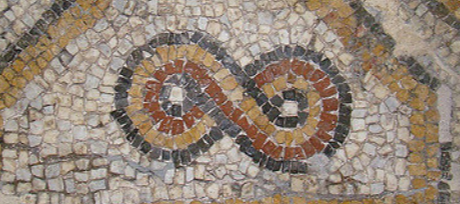Happy Twentieth of November! Giving Thanks Where It Is Truly Due
Happy Twentieth of November!
This upcoming week in the United States is one of the primary times that family and friends travel to be with one another and celebrate the things which they most value in their lives. Unfortunately this exercise is bundled with “Thanks-giving” to supposed Judeo/Christian/Islamic divinities (or Stoic “Providence”) which created this world and the good things that exist in it – while most frequently being exempted from responsibility for the bad things).
It is virtually impossible for us to escape completely from this cultural corruption, but here is a reminder from Cicero through Velleius, in addressing Lucilius the Stoic, that there was once an Epicurean time when an alternative cultural worldview existed, and the eternality of the universe as a whole was recognized:
“If your Providence, Lucilius, is the same as Plato’s God, I ask you, as before, who were the assistants, what were the engines, what was the plan and preparation of the whole work? If it is not the same, then why did she make the world mortal, and not everlasting, like Plato’s God? But I would demand of you both, why these world-builders started up so suddenly, and lay dormant for so many ages? For we are not to conclude that, if there was no world, there were therefore no ages. I do not now speak of such ages as are finished by a certain number of days and nights in annual courses. For I acknowledge that those could not be without the revolution of the world, as there was a certain eternity from infinite time, not measured by any circumscription of seasons. But how that was in space we cannot understand, because we cannot possibly have even the slightest idea of time before time was. I desire, therefore, to know, Balbus, why this Providence of yours was idle for such an immense space of time? Did she avoid labor? But that could have no effect on the Deity; nor could there be any labor, since all Nature, air, fire, earth, and water would obey the divine essence. What was it that incited the Deity to act the part of an ædile, to illuminate and decorate the world? If it was in order that God might be the better accommodated in his habitation, then he must have been dwelling an infinite length of time before in darkness as in a dungeon. But do we imagine that he was afterward delighted with that variety with which we see the heaven and earth adorned? What entertainment could that be to the Deity? If it was any, he would not have been without it so long.”
Excerpt from Cicero’s On the Nature of the Gods
Yes – let’s be thankful this week, and every week, to those who left us a legacy from the Epicurean school to which we can continue to for the path for spending our lives happily.
________
As Seneca recorded: Sic fac omnia tamquam spectet Epicurus! So do all things as though watching were Epicurus!
And as Philodemus wrote: “I will be faithful to Epicurus, according to whom it has been my choice to live.”
Additional discussion of this post and other Epicurean ideas can be found at the Epicurean Philosophy Facebook Group and EpicureanFriends.com


